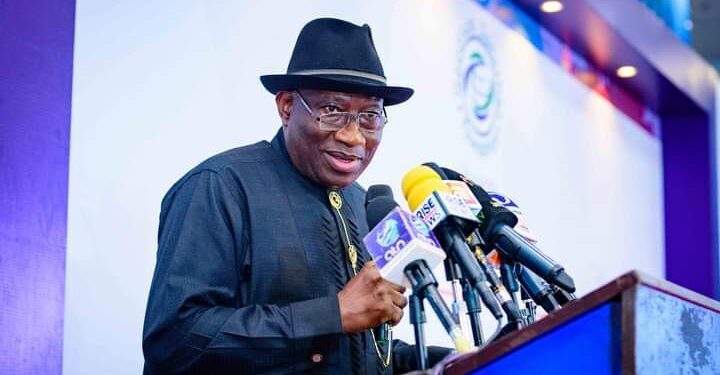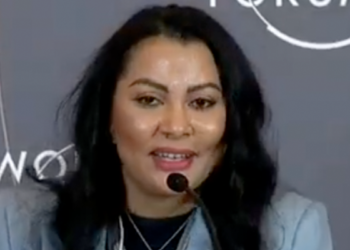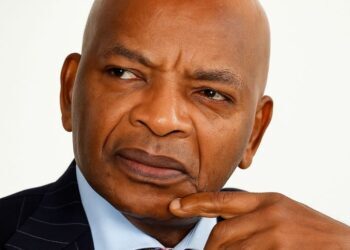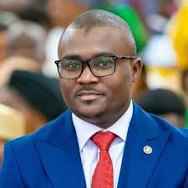…. Says technology brought more crises
…INEC’s independence still a problem – Jega
Former Nigerian President Goodluck Jonathan has criticised the role of electoral bodies and the judiciary in shaping the democratic process in West Africa.
Speaking at a conference in Abuja on Tuesday, Jonathan argued that the Independent National Electoral Commission (INEC) and the judiciary often contribute to electoral shortcomings in Nigeria and the wider region.
The conference, organised by Yiaga Africa, focused on democratic elections in West Africa.
Jonathan insisted that electoral reforms in Nigeria must be comprehensive to address systemic flaws affecting both national and subnational polls.
“If elections must be done properly, then the judiciary must always play their role,” Jonathan said.
“A corrupt environment encourages corruption. If INEC and the judiciary do not act decisively, politicians will exploit the system to win by any means necessary.”
Jonathan acknowledged that while some West African nations have held credible elections, others have struggled with violence, allegations of fraud, and institutional weaknesses.
He cited Nigeria’s 2023 general elections, where the introduction of the Bimodal Voter Accreditation System (BVAS) and the Results Viewing Portal (IReV) aimed to improve transparency.
However, logistical failures, violence, and technical glitches undermined public confidence.
Similarly, Sierra Leone’s 2023 elections, which incorporated biometric voter registration, were overshadowed by accusations of voter intimidation and ethnic tensions.
By contrast, Ghana’s general elections—despite limited use of technology—were deemed peaceful and transparent, thanks to strong electoral and security institutions.
Liberia also witnessed a smooth transition of power, with incumbent President George Weah conceding defeat to opposition candidate Joseph Boakai.
Senegal, despite pre-election tensions and opposition arrests, conducted a largely peaceful poll that resulted in the election of Bassirou Diomaye Faye.
Jonathan noted that technology can enhance electoral credibility but is not a cure-all.
He pointed out that while biometric systems and real-time results transmission improved transparency in some cases, they also triggered disputes in others, such as Nigeria and Sierra Leone.
“This development underscores the place of the human element in deepening democracy,” he said.
“Technology, no matter how sophisticated, cannot ensure credible elections without the commitment of authorities and citizens to do the right thing.”
He stressed that independent electoral commissions and impartial security forces are essential for credible elections.
“The success or failure of any election lies in the hands of two critical agencies: the electoral management body and the police,” he added.
Former INEC Chairman, Professor Attahiru Jega, also spoke at the conference, questioning the independence of Nigeria’s electoral commission.
He warned that electoral management bodies in West Africa face growing challenges, including political interference, weak legal frameworks, and security threats.
Jega highlighted identity politics as a major problem in West African democracies, contributing to voter manipulation and political instability. He linked the rise of coups in Mali, Burkina Faso, Guinea, and Niger to public disillusionment with civilian governance.
“The struggle for power among reckless elites, lacking consensus and self-interest, has undermined democracy in the region,” Jega said.
“If these challenges are not addressed, we may see further democratic backsliding.”











